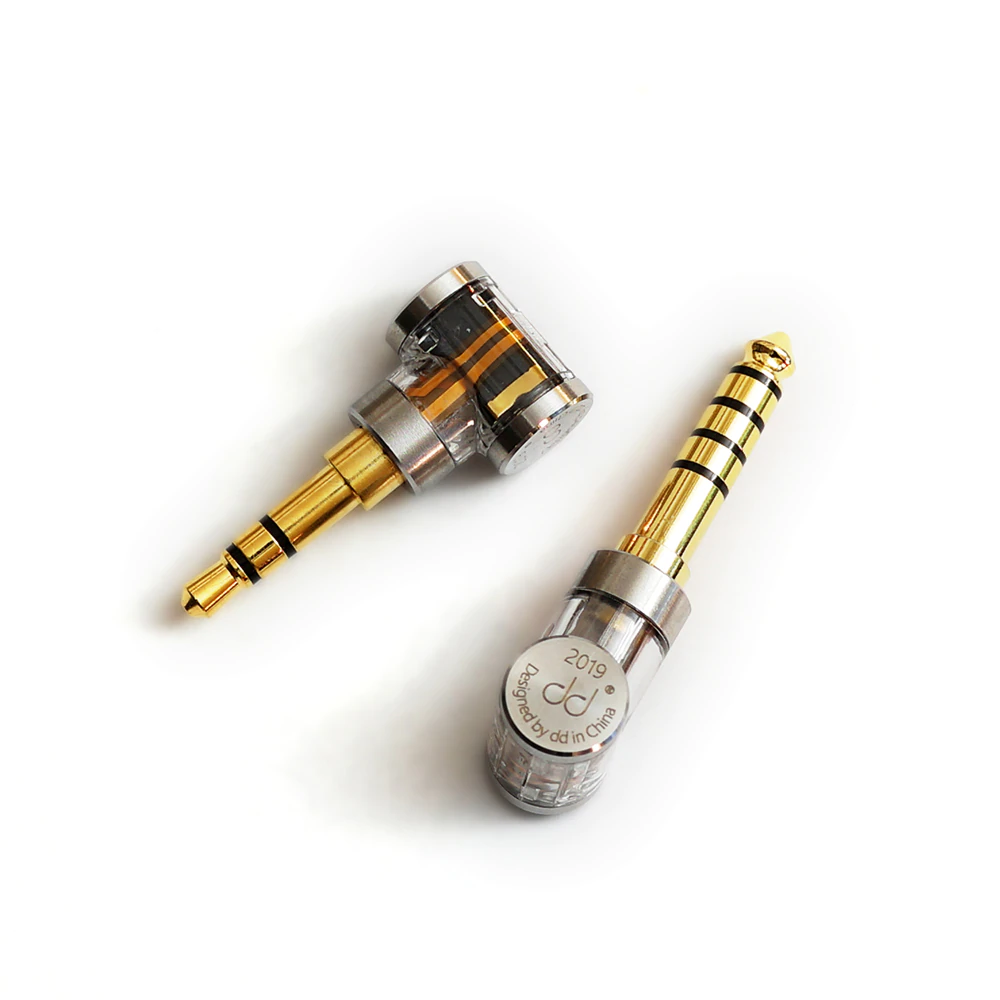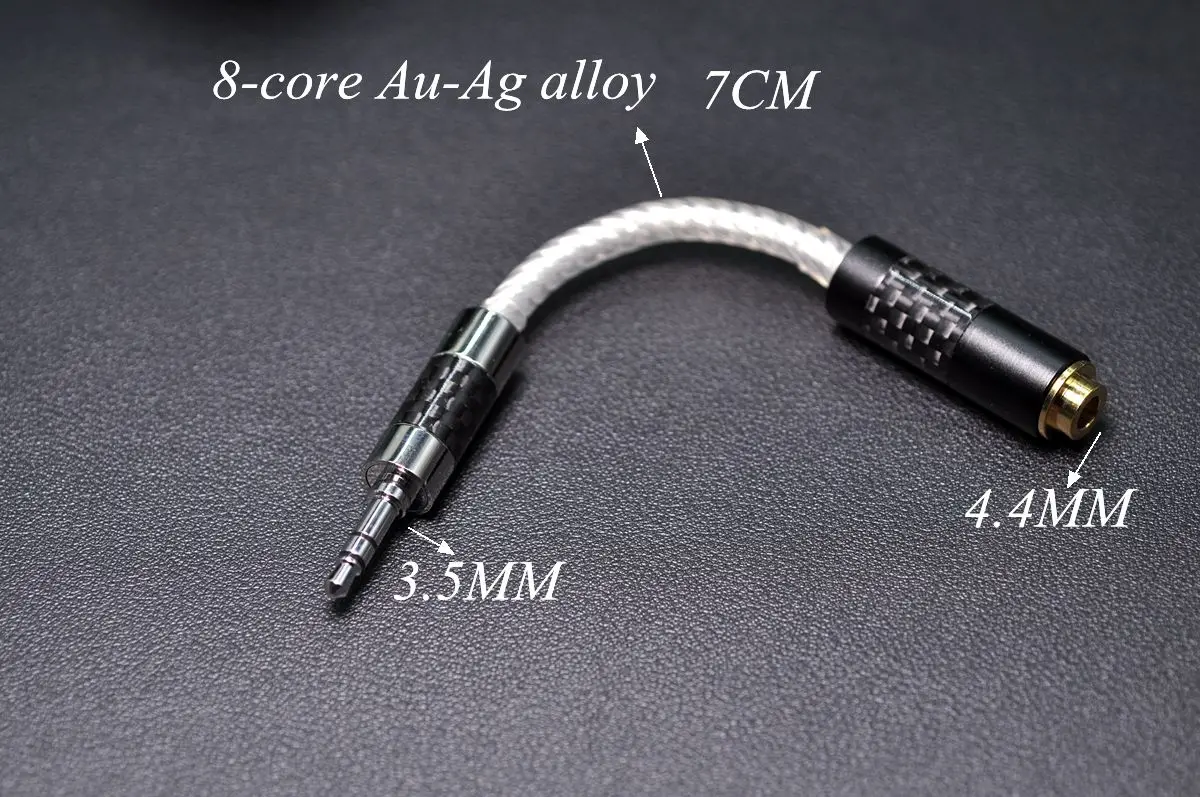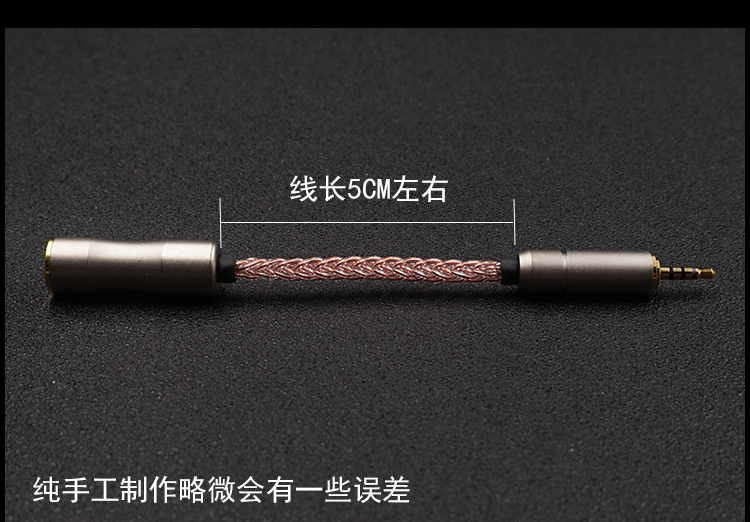Funny you mention that. This first 2.5mm balanced cable I ordered was a SPC no name brand. I always thought it was extremely bass light by virtue of SPC. I just measured it, and it was my worst aftermarket cable at 1.2 ohms (I have somewhere between. 2-.3 ohm lead resistance).
So my experience with one cable has essentially molded my views in many ways and now I'm questioning my assumptions even more since measuring it....
and we know that relying on an anecdote is the best way to always be right about a general idea.

first, different situations lead to different results. even the most ignorant guy will guess that if I used an IEM cable to carry high voltage to the next town, it wouldn't last long. it's not too hard to get that extremely different cases require different cables. but jumping from that to thinking that we're going to change our musical experience entirely by replacing a wire, there is room for a little caution. if you want lower impedance, you'll want plugs that are tight, bigger contact surfaces, and of course larger wires(or several smaller ones in parallel). there is no secret, if you give the current twice the room, you'll halve the resistance(assuming the limit isn't set somewhere else at the plug). but who wants to carry some big fat IEM cable with giant banana plugs at both ends? not me. and there is the entire mystery of IEM cables, solved. like with absolutely anything else, the best option is a compromise between many variables and not some dumb push for one variable at any price no matter the side effects for the other variables
if impedance/resistance is you new obsession, you might care to know that in most cases a balanced setup will about double the impedance of the amp section. or that for the IEM, the source's impedance is the amp output+the cable, so going crazy over cables should motivate even people obsessed(probably for the wrong reasons) to at least try to be consistent and care about the amp's output too. when I see people happy to save 0.2ohm on a silver cable but they also go balanced and add a full ohm that way, they might want to rethink their understanding of the situation.
yes, "but do hear differences going from Copper to SPC to silver for example". i was in the same boat, skeptic when started to try cables. and also hear clear differences between different materials, even comparing different copper wires; i'll do an ABX soon, controlled by my brother, audio engineer and non-believer in cables; hope the result will be enough to shut up trolls.
get any up-occ cable, and compare it to your other cables, and you'll notice the difference. my actual fav cable is 175 in my list. please read my first posts in this thread.
for resistance measurements (mΩ), i use Vapcell YR1030 (
https://lygte-info.dk/review/InternalResistanceMeterYR1030 UK.html , around $38), because of its resolution (~1mΩ) and because it uses 4 terminal leads (alligator clamps or probes, like showed at
https://lygte-info.dk/review/InternalResistanceMeterYR1035 UK.html ); this is very comfortable: you don't have to subtract leads resistance, and measurements are more stable.
the width of the alligators is similar to the width of the ring in 2.5mm plugs, so it is comfortable (i also own shaky hands).
believers and non believers are both doing it wrong. we shouldn't treat electricity as a gut feeling, an opinion, or a belief. if electrons act so consistently and predictably that some dude once seriously wondered if all the electrons in the universe weren't in fact the same single electron moving through space and time, I believe we can bother treating electrical signals as factual objective events instead of subjective ideas. that in turn, means actually testing stuff before saying that we know something about it. I get how annoying it is to even have those conversations, and people who keep replying "no you didn't" when you tell them you experienced something. it pisses me off too because of course I've experienced IEM cables making an audible difference on occasion over the years. the right conclusion to an empty claim is not the opposite empty claim and people weren't with us when we experienced what we did(or thought we did). but that alone never makes it ok to draw objective conclusions from sighted impressions. as long as audiophiles will act like the total sum of requirements to study something objectively is:
-put IEM on
-press play
-what do I feel?
everybody who has half a clue will treat them like overconfident fools. rightfully so. pride and unwarranted self confidence do not replace proper experimentation. never did, never will. if people really cared about the truth and sharing factual information, well first they wouldn't make 3 empty claims per post, but they would pay attention to saying that they feel(whatever it is they subjectively experienced). and only start talking about how a cable made an audible change once they have properly tested that in a controlled test. in a perfect world audiophile would all know, understand and respect that distinction, and our hobby wouldn't be a running gag for everybody else. it would be quite simple to do things right when we think about it. no need to properly test everything, so long as we don't talk like we already did.
No - nobody has ever shown any evidence, in the form of blind ABX tests (the only scientifically and statistically valid tests in this case) that anything other than resistance (even material type) has any audible effect with cables. (Conversely, plenty of ABX tests have shown attributes other than resistance have in fact no audible affect.) Just get a cable with reasonably low resistance and price and you'll be fine. Of course, any other attributes like weight, softness, flexibility, and aesthetics are up to personal taste. The only things that could make you a believer in anything other than resistance having an audible affect are placebo and unconscious expectation bias.
first, you might have a real hard time finding even 10 proper abx tests from different people about IEM cables. so not finding one doesn't really demonstrate anything.
second, I would find this less objectionable if you had said impedance instead of resistance. because I'm sure we can manufacture some conditions stupid enough to have audible frequency roll off from capacitance. and perhaps some really absurd(so it's audible) amount of crosstalk sometimes.
but yes, impedance, with a big part being resistance, is probably the main cause for audible changes caused by IEM cables. like making one slightly louder, or leading to a little change in the IEM's FR. neither being much of anything in term of objective improvement, so that alone makes IMO the search for the perfect cable a lot less interesting as i already use a very nice EQ and volume control for those tasks. but as always, there is some room between making sure we avoid very crappy cables, and going crazy over every details. I don't really care about cables, but I'm confident that I test mine more strictly than most people passionate about their audio cables will ever do. so maybe I'm the one obsessed with cables? ^_^
 it will officially replace my old FiiO L26 (which was malfunctionning sometimes)
it will officially replace my old FiiO L26 (which was malfunctionning sometimes)

 it will officially replace my old FiiO L26 (which was malfunctionning sometimes)
it will officially replace my old FiiO L26 (which was malfunctionning sometimes)



























